Ultimate Morocco Travel Guide: Discover Morocco's 12 Enchanting Cities
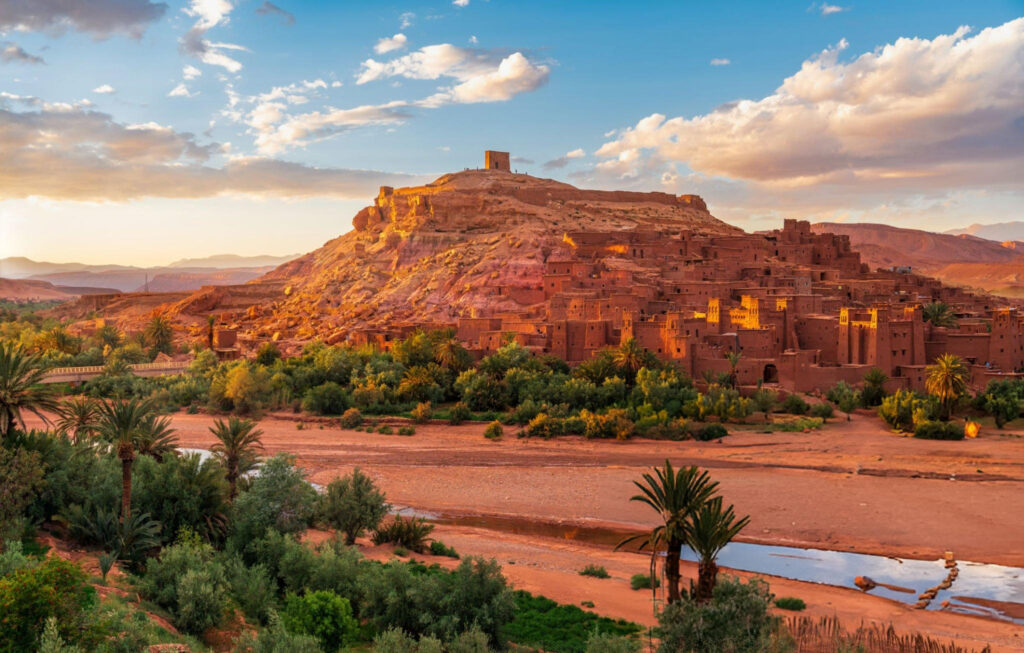
Explore the ultimate Morocco Travel Guide! From vibrant cities and stunning landscapes to rich culture and unforgettable experiences, discover everything you need to plan your dream trip to Morocco
Morocco - A Land of Contrasts and Beauty
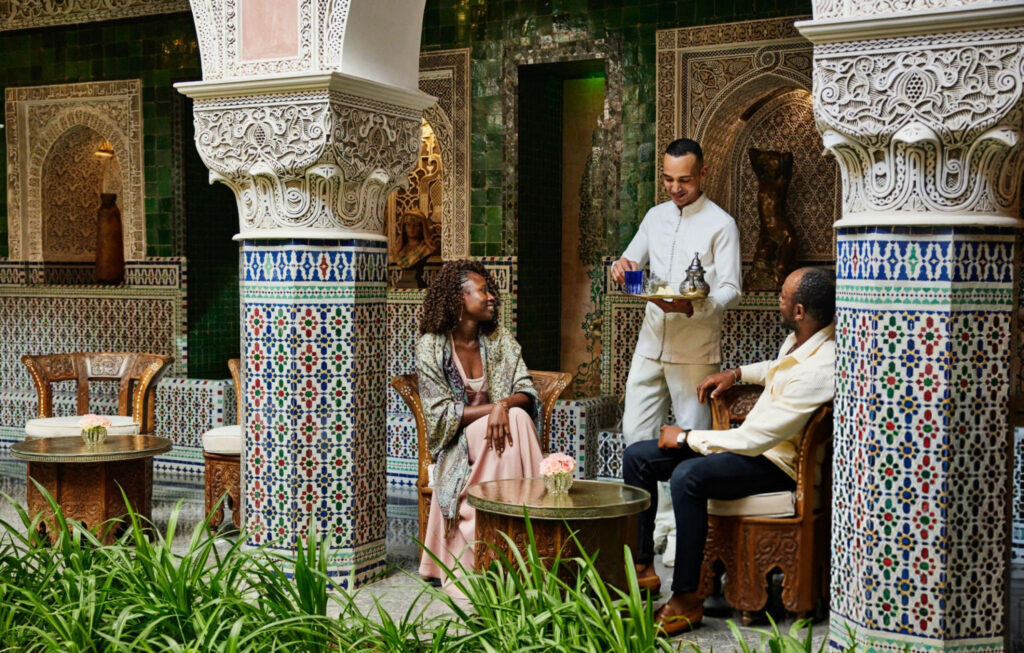
Morocco’s stunning landscapes range from deserts to mountains to coastal towns
Why Morocco Should Be Your Next Destination
Enchanting Cities
Morocco is home to some of the most iconic cities in the world, each with its own unique charm and character:
– Marrakech: Known as the “Red City,” Marrakech is a sensory overload with its vibrant souks, historic palaces, and lively Jemaa el-Fnaa square. The city is a perfect blend of tradition and modernity, offering everything from luxury riads to bustling street markets. Don’t miss the Bahia Palace, the Saadian Tombs, and the tranquil Majorelle Garden.
– Fes: Step back in time in Fes, the cultural and spiritual heart of Morocco. Its ancient medina, a UNESCO World Heritage Site, is a maze of narrow alleys, bustling markets, and historic mosques. The city is also home to the world’s oldest university, the University of Al Quaraouiyine.
– Casablanca: A blend of modernity and tradition, Casablanca is home to the stunning Hassan II Mosque, one of the largest mosques in the world. The city’s Corniche offers a lively seaside atmosphere, while the Habous Quarter provides a glimpse into traditional Moroccan life.
– Chefchaouen: The “Blue City” is a photographer’s dream, with its blue-painted streets and serene mountain backdrop. Nestled in the Rif Mountains, Chefchaouen is a peaceful retreat where you can wander through charming streets, shop for local crafts, and enjoy the relaxed atmosphere.
– Essaouira: This coastal town is known for its bohemian vibe, historic fortifications, and beautiful beaches. It’s a haven for artists, musicians, and windsurfers, offering a perfect blend of culture and relaxation.
Breathtaking Landscapes
Morocco’s geography is as diverse as its culture, offering something for every type of traveler:
– The Sahara Desert: Experience the magic of the desert with a camel trek, a night under the stars in a luxury desert camp, and the mesmerizing sunrise over the dunes. The Erg Chebbi and Erg Chigaga dunes are among the most popular destinations for desert adventures.
– The Atlas Mountains: Hike through picturesque Berber villages, explore lush valleys, and enjoy panoramic views of the rugged peaks. The Toubkal National Park is a favorite among trekkers, with Mount Toubkal being the highest peak in North Africa.
– Coastal Towns: From the laid-back vibes of Essaouira to the glamorous beaches of Agadir, Morocco’s coastline offers something for everyone. The Mediterranean town of Tangier and the Atlantic city of Casablanca are also worth exploring.
– Oases and Valleys: The Draa Valley and the Dades Valley are known for their stunning landscapes, lush palm groves, and traditional kasbahs. These regions offer a glimpse into rural Moroccan life and are perfect for scenic drives and hikes.
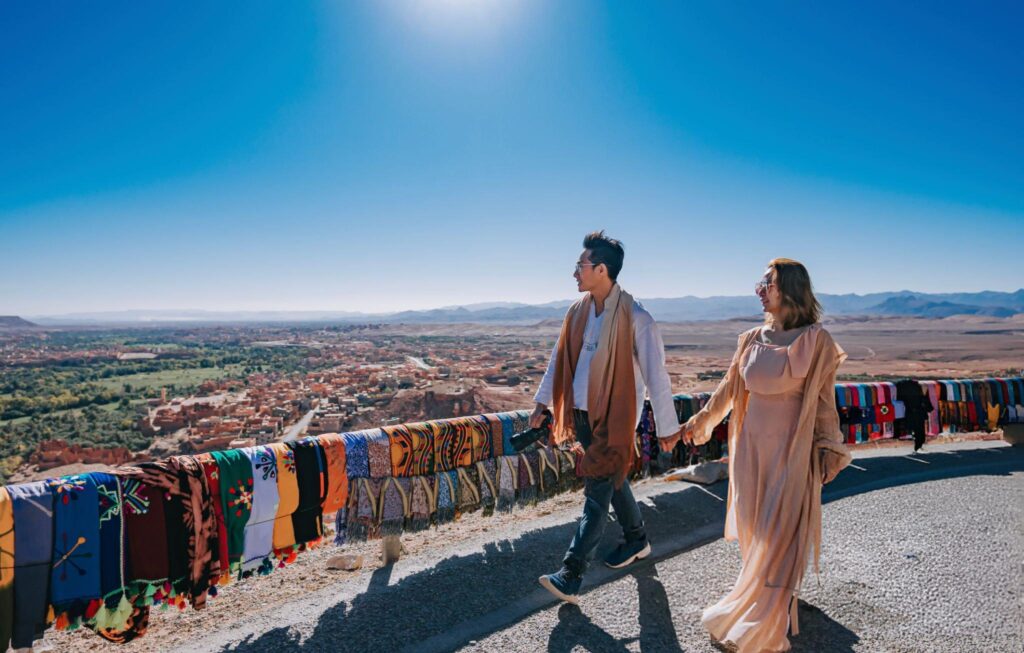
Rich Cultural Heritage
Morocco’s history is a tapestry of Berber, Arab, and European influences. The country’s cultural heritage is reflected in its architecture, arts, and traditions:
– Ancient Ruins: Explore the Roman ruins of Volubilis, a UNESCO World Heritage Site near Meknes. The site features well-preserved mosaics, arches, and columns that offer a glimpse into Morocco’s Roman past.
– Historic Architecture: Marvel at the intricate architecture of Moroccan riads, mosques, and madrasas. The Koutoubia Mosque in Marrakech, the Hassan II Mosque in Casablanca, and the Bou Inania Madrasa in Fes are just a few examples of the country’s architectural wonders.
– Arts and Crafts: Morocco is famous for its vibrant arts and crafts scene. From handwoven carpets and pottery to intricate metalwork and leather goods, the country’s souks are a treasure trove of handmade items.
Culinary Delights
Moroccan cuisine is a feast for the senses, offering a unique blend of flavors and spices:
– Traditional Dishes: Savor traditional dishes like tagine, couscous, and pastilla. Tagine, a slow-cooked stew made with meat, vegetables, and spices, is a staple of Moroccan cuisine. Couscous, often served with vegetables and meat, is a Friday tradition in many Moroccan households.
– Street Food: Don’t miss the chance to try Moroccan street food, such as harira (a hearty soup), msemen (a flaky flatbread), and grilled meats. The food stalls in Jemaa el-Fnaa square in Marrakech are a must-visit for food lovers.
– Mint Tea: A cup of mint tea is a symbol of Moroccan hospitality. This sweet and refreshing drink is often served with snacks and is a staple of Moroccan social life.
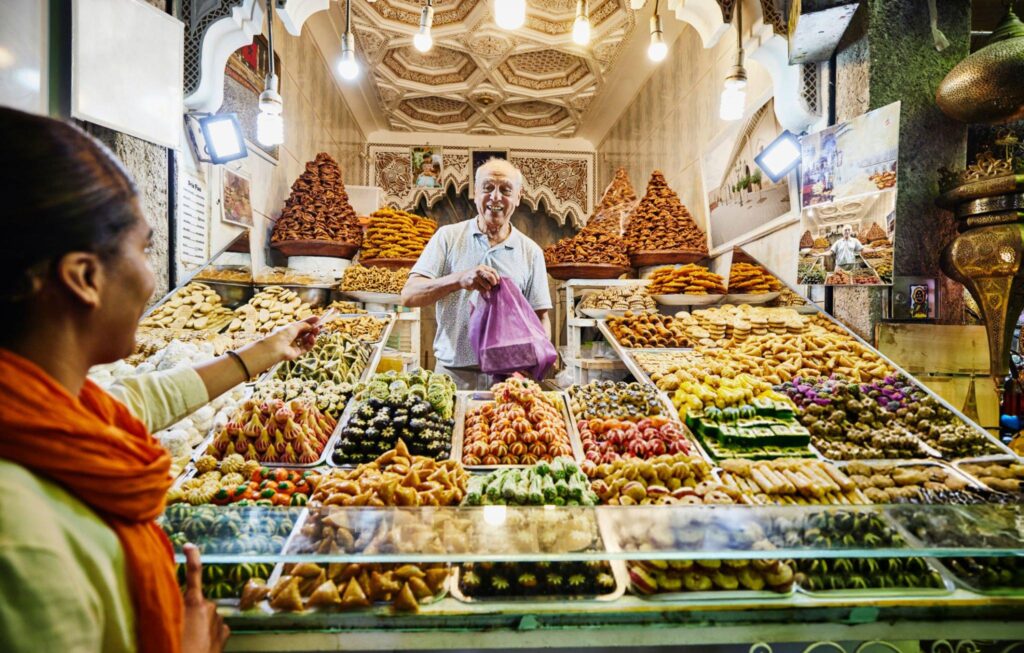
Warm Hospitality
Moroccans are known for their warmth and generosity. Whether you’re staying in a luxury riad or a desert camp, you’ll be welcomed with open arms and treated like family. The country’s hospitality is reflected in its traditions, such as the sharing of mint tea and the offering of dates to guests.
Must-Do Experiences in Morocco
– Explore the Medina of Fes: Lose yourself in the labyrinthine streets of the world’s largest car-free urban area. The medina is home to historic mosques, madrasas, and bustling markets.
– Ride a Camel in the Sahara: Embark on a desert adventure and witness the stunning beauty of the Erg Chebbi dunes. Spend the night in a luxury desert camp and enjoy traditional Berber music under the stars.
– Visit the Majorelle Garden in Marrakech: A tranquil oasis of exotic plants and vibrant blue architecture. The garden was designed by French painter Jacques Majorelle and later restored by fashion designer Yves Saint Laurent.
– Hike in the Atlas Mountains: Discover the beauty of the High Atlas and meet the friendly Berber communities. The Toubkal National Park offers a range of hiking trails, from easy walks to challenging treks.
– Relax in a Traditional Hammam: Indulge in a rejuvenating spa experience that has been a Moroccan tradition for centuries. A visit to a hammam is a great way to relax and unwind after a day of exploring.
– Shop in the Souks: Morocco’s souks are a shopper’s paradise, offering everything from spices and textiles to pottery and jewelry. Don’t forget to bargain for the best prices!
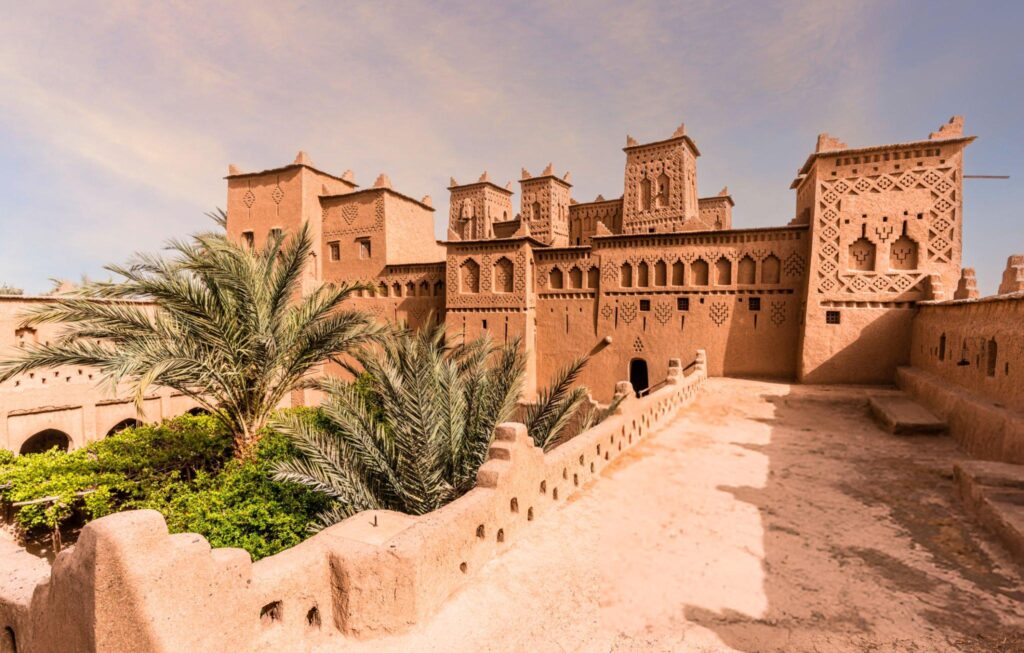
Tips for Traveling in Morocco
– Best Time to Visit: Spring (March to May) and fall (September to November) offer pleasant weather for exploring. Summers can be extremely hot, especially in the desert regions, while winters can be cold in the mountains.
– Dress Modestly: Respect local customs by dressing conservatively, especially in rural areas and religious sites. Women should consider covering their shoulders and knees, and men should avoid wearing shorts in conservative areas.
– Learn a Few Phrases: While many Moroccans speak French and English, learning a few Arabic or Berber phrases can go a long way. Simple greetings like “Salam alaikum” (peace be upon you) and “Shukran” (thank you) are always appreciated.
– Bargain in the Souks: Haggling is a part of the shopping experience in Morocco, so don’t be afraid to negotiate. Start by offering half the asking price and work your way up to a fair deal.
– Stay Hydrated: Morocco’s climate can be dry, especially in the desert regions. Make sure to drink plenty of water and carry a reusable water bottle with you.
– Respect Local Customs: Morocco is a Muslim country, and it’s important to respect local customs and traditions. Avoid public displays of affection, and always ask for permission before taking photos of people.
Morocco is a destination that promises adventure, relaxation, and cultural enrichment. Whether you’re wandering through ancient medinas, trekking in the mountains, or savoring the flavors of Moroccan cuisine, every moment in this magical country is unforgettable.
Start planning your trip to Morocco today and get ready to create memories that will last a lifetime!





